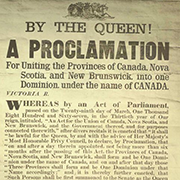With the arrival of Jacques Cartier and Samuel de Champlain in the Maritimes and along the St. Lawrence River, the first French settlements in North America were established. France encouraged exploration, colonization, and exploitation of these new lands, leading to the growth of towns like Annapolis Royal, Quebec City, and Montreal. Champlain, considered the father of New France, played a key role in exploring vast areas, forming alliances with some Indigenous groups, and fighting others, helping to shape a unique French identity in Canada.
The development of New France occurred in two phases: initially, chartered companies were licensed to explore and settle, but they were primarily focused on commerce rather than society-building. The second phase began in 1663 when the French crown took direct control, sending settlers, resources, and support to grow a more sustainable colony, which later became an important part of Canada's national identity.







